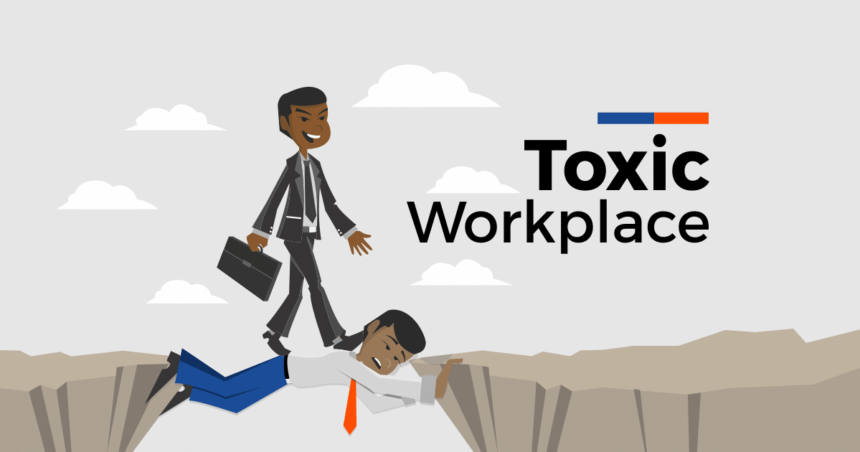How to Navigate Toxic Workplaces in Nigeria
Introduction
Many Nigerian workers face toxic workplaces that drain energy and hinder growth. Stressful environments, unfair rules, or constant pressure can harm your well-being. This guide offers practical steps to manage toxic work settings in Nigeria, helping you recognize signs, respond effectively, and find support. Written in simple language, it provides actionable advice you can use today.
- How to Navigate Toxic Workplaces in Nigeria
- Introduction
- Recognize the Signs of a Toxic Workplace
- Assess Your Situation
- Protect Your Mental and Physical Health
- Communicate with Care and Clarity
- Seek Support Within the Company
- Understand Nigerian Workplace Norms
- Consider Your Career Path
- When to Consider Leaving
- Strategies to Survive While Planning to Leave
- If You Face Harassment or Unsafe Situations
- Create a Plan for a Healthier Workplace
- Protect Your Brand and Reputation
- Resources and Support Options
- Conclusion
Recognize the Signs of a Toxic Workplace
- Poor communication: Unclear messages, spreading rumors, or harsh feedback.
- Bullying and harassment: Jokes about race, gender, or background, or intimidation in meetings.
- Unfair workload: Heavy tasks, impossible deadlines, and minimal breaks.
- Lack of respect: Disrespectful colleagues, ignored input, or favoritism in promotions.
- High turnover: Frequent staff departures signaling deeper issues.
- Micromanagement: Constant oversight, limited autonomy, and fear of errors.
- Blame culture: Power used to assign blame instead of solving problems.
Assess Your Situation
- List concrete examples: Note dates, people, events, and outcomes.
- Note the impact: Track stress, sleep, focus, and productivity changes.
- Check patterns: Is the issue with one manager or company-wide? Recent or ongoing?
- Prioritize safety: If facing abuse or threats, seek immediate help.
Protect Your Mental and Physical Health
- Set boundaries: Limit overtime, take breaks, and disconnect after hours.
- Manage stress: Exercise daily, sleep well, eat healthily, and take short breathing breaks.
- Create a safe space: Confide in a trusted colleague or mentor.
- Use resources: Access employee assistance programs, health benefits, or mental health support if available.
- Document everything: Record incidents, dates, and responses for clarity.
Communicate with Care and Clarity
- Prepare your message: State the issue, its impact, and your desired outcome.
- Use factual language: Avoid insults, focus on behavior and results.
- Seek clear answers: Request specific changes, like revised processes or HR meetings.
- Choose the right channel: Start privately, then follow up in writing.
Seek Support Within the Company
- HR department: Report harassment, safety issues, or policy violations.
- Trusted allies: Find supportive colleagues to validate and document concerns.
- Compliance hotlines: Use these for serious issues if available.
- Managerial escalation: If your supervisor is the issue, approach their superior.
Understand Nigerian Workplace Norms
- Respect and relationships: Personal connections matter, so communicate tactfully.
- Formal channels: Written emails and documented requests are effective.
- Trade unions: Some sectors offer guidance through unions or professional bodies.
- Labor laws: Know your rights on hours, overtime, and safety standards.
User also read: Top 5 Skills Nigerian Employers Want in 2025
Consider Your Career Path
- Weigh staying: Assess impacts on health, happiness, and career goals.
- Explore internal options: Look for transfers or roles with better culture.
- Update your profile: Refresh your resume and LinkedIn, avoiding sensitive details.
- Discreet job search: Seek opportunities aligned with your values.
When to Consider Leaving
- No improvement after feedback or escalation.
- Ongoing abuse, discrimination, or illegal behavior.
- Serious risks to health, safety, or mental well-being.
- Inability to work effectively or grow in the role.
Strategies to Survive While Planning to Leave
- Build a network: Connect with mentors, friends, or family for advice.
- Maintain performance: Keep work quality high to protect your reputation.
- Financial planning: Save an emergency fund and review expenses.
- Skill building: Pursue courses or certifications to boost marketability.
- Networking: Attend industry events and connect with peers for job leads.
If You Face Harassment or Unsafe Situations
- Document promptly: Keep notes, emails, and calendar entries.
- Report formally: Use HR or leadership channels to raise concerns.
- Seek legal advice: Understand your rights under Nigerian labor law.
- Contact external bodies: Reach out to regulators or associations if applicable.
Create a Plan for a Healthier Workplace
- Propose changes: Suggest clear policies, fair reviews, or defined procedures.
- Request training: Advocate for manager training or harassment prevention.
- Push for transparency: Recommend published goals and accountability metrics.
- Encourage communication: Promote team check-ins and anonymous feedback.
Protect Your Brand and Reputation
- Stay professional: Avoid gossip and handle conflicts calmly.
- Document work: Keep records of your contributions.
- Seek validation: Collect references or endorsements from reliable colleagues.
- Maintain privacy: Protect personal information to minimize risks.
Resources and Support Options
- Local labor offices: Access Nigeria’s labor ministries for workplace rights guidance.
- Legal counsel: Consult lawyers for contract or dispute advice.
- Mental health support: Seek confidential counseling through health plans or community programs.
- Professional associations: Join sector-specific groups for ethics and support.
Conclusion
Navigating a toxic workplace in Nigeria is tough but achievable. Document issues, set boundaries, and seek support while prioritizing your health. With careful steps, you can improve your situation or move to a role that values your time and contributions.
Image source: Jobberman.com





